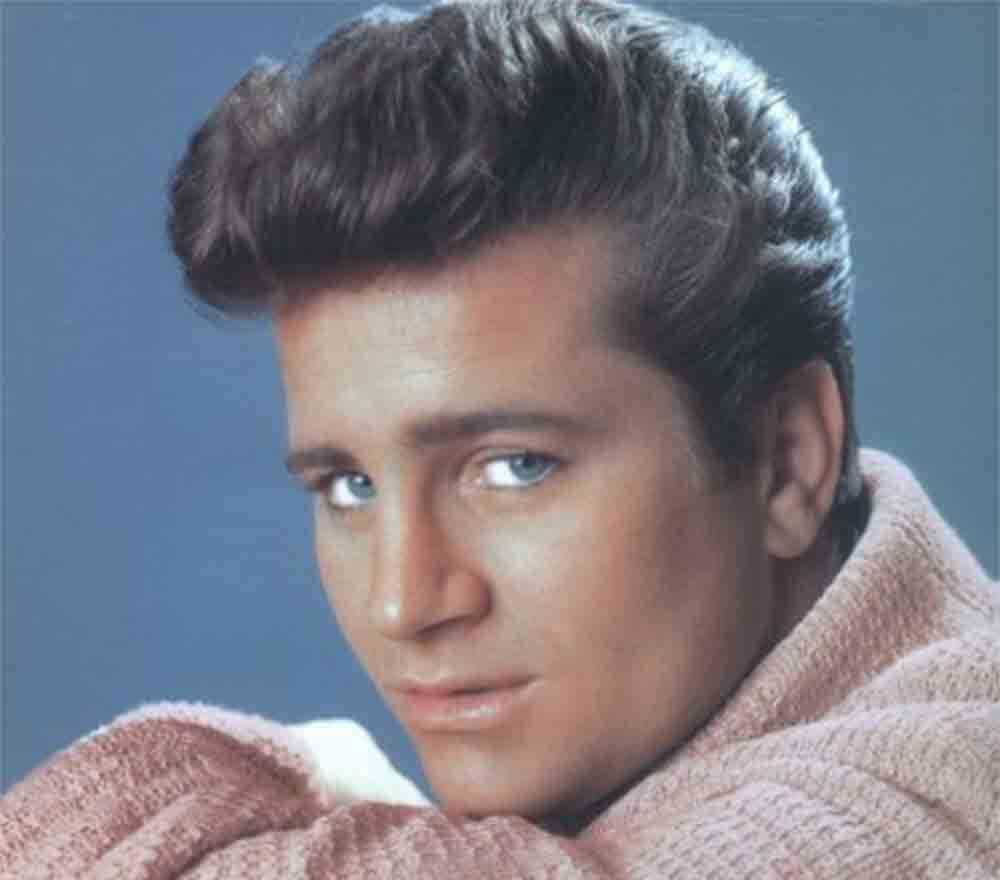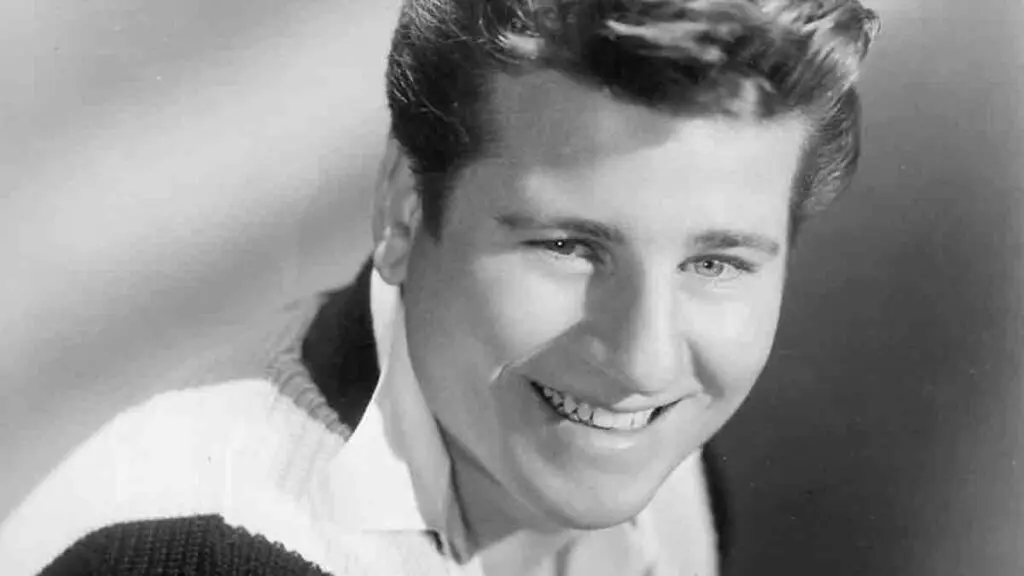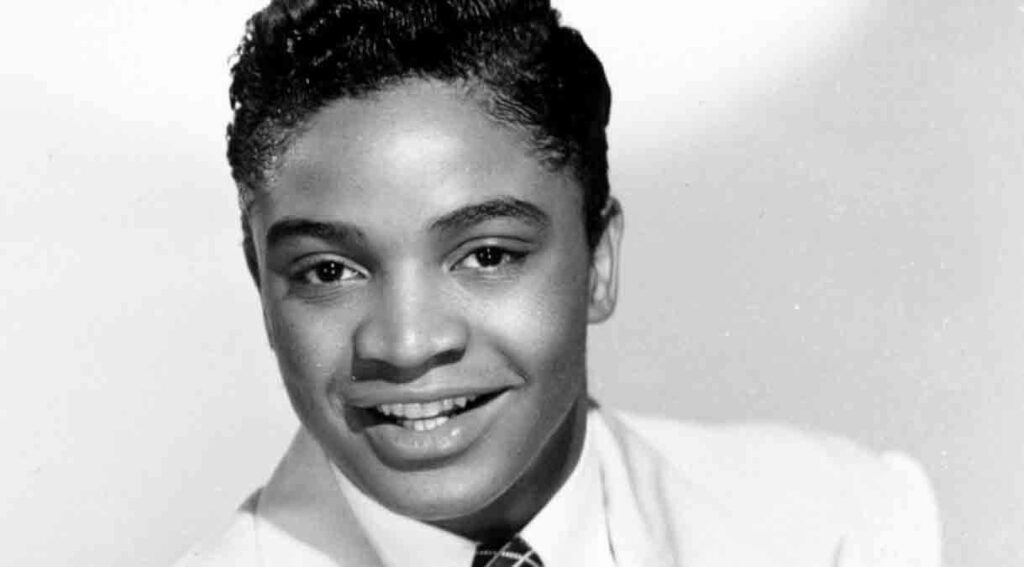Johnny Burnette was a popular American singer of the 1950s and 1960s, who became widely known as a writer and performer of rock and roll and rockabilly songs. He is considered one of the founders and popularizers of this trend in American musical culture, along with his famous countryman Elvis Presley. Burnett's creative career ended at its peak as a result of a tragic accident.
Young years Johnny Burnette
Johnny Joseph Burnett was born in 1934 in Memphis, Tennessee, USA. In addition to Johnny, the family also brought up the younger brother Dorsey, who later became one of the co-founders of the rockabilly band The Rock & Roll Trio.
In his youth, Burnett lived in the same high-rise building with a young Elvis Presley, whose family moved to Memphis from Missouri. However, in those years, there was no creative friendship between the future stars of rock and roll.

The future singer studied at the Catholic school "Holy Communion". And initially did not show significant interest in music. An energetic, physically developed young man was much more interested in sports. He was one of the main players in the school baseball and American football teams. Later, he, along with his brother Dorsey, became seriously interested in boxing, even winning the youth amateur state championship. After leaving school, Burnett tried to find himself in professional boxing, but not entirely successful.
After another unsuccessful fight, thanks to which he gained $ 60 and also broke his nose, he decided to leave professional sports. 17-year-old Johnny got a job as a sailor on a self-propelled barge, where his brother had previously entered as an assistant minder. After another voyage, he and Dorsey worked part-time in their native Memphis. They performed in night bars and dance floors.
The appearance of The Rock & Roll Trio
Gradually, the passion for music interested the brothers even more. And at the end of 1952 they decided to form the first Rhythm Rangers band. Third, they invited their friend P. Barlison.
All three played guitar except vocals: Jimmy on acoustic, Barlison on lead guitar, and Dorsey on bass. The team has also decided on its musical direction. It was only the nascent rockabilly, which is a combination of rock and roll, country, and boogie-woogie.
A few years later, a young but ambitious trinity set off from their provincial Memphis to conquer New York. Here, after a series of unsuccessful attempts to “break through” to the big stage, fortune finally smiled at them. In 1956, the musicians managed to get on the Ted Mack project and won this competition for young performers.
This small triumph was of great importance to Burnett and his friends. They received a contract with the New York record company Coral Records. The group, which was renamed The Rock & Roll Trio, was managed by Henry Jerome. Also, Tony Austin was invited to the team as a drummer.

Unprecedented popularity of the team
The first performances of the newly created group were successfully held on variety venues in New York and in the Music Hall. And in the summer, The Rock & Roll Trio went on a tour of America along with such performers as Harry Perkins and Gene Vincent. In the fall of 1956, they won another music competition, which was held in Madison Square Garden. During the same time, the group recorded and released three debut singles.
To cover the costs of new recordings and living in New York, aspiring musicians had to work in a frantic pace of constant performances and tours. This inevitably affected the emotional state of the team members. Quarrels and dissatisfaction with each other even more often arose between them. In late 1956, after a performance by The Rock & Roll Trio at Niagara Falls, Dorsey announced his retirement after another quarrel with his brother.
This happened just a few weeks before the band's scheduled filming of Frida's Rock, Rock, Rock. The band director had to urgently look for a replacement for the departed Dorsey - bassist John Black became them. But, despite the appearance of the film "Frida" and the release of three more singles during 1957, the group failed to gain huge popularity. Her records sold poorly, and her songs no longer hit the national charts. As a result, Coral Records decided not to renew the contract with the musicians.
Johnny Burnett's California Triumph
After the collapse of the team, Johnny Burnett returned to his native Memphis, where he met a friend of his youth, Joe Campbell. Together with him, he decided to make a second attempt to conquer the musical Olympus of America. They were rejoined by Dosi and Burlinson, and the entire campaign hitchhiked to California.
Upon arrival in Los Angeles, Johnny and Dorsey found the address of their childhood idol, Ricky Nelson. In anticipation of the performer, the brothers sat all day at the porch of the house, but still waited for him. The Burnets' perseverance paid off. Nelson, despite being busy and tired, agreed to get acquainted with their repertoire, and for good reason. The songs impressed him so much that he agreed to record several compositions with them.
The success of the joint work of the Burnett brothers and Rocky Nelson allowed the musicians to conclude a recording contract with Imperial Records. In the new musical project, the brothers Johnny and Dorsey performed as a duet. And Doyle Holly was invited as a guitarist. Since 1958, the real triumph of John Burnett began both as a songwriter and as a performer. In 1961, the brothers released their last joint single. Then they decided to go their own way as solo artists.
The Solo Way of Johnny Burnette
John received invitations from various record companies. In the early 1960s, he recorded tracks for several projects at once. Among them, albums should be highlighted: Green Grass of Texas (1961, reissued in 1965) and Bloody River (1961). The single Dreamin' reached number 11 on the national charts in 1960. It sold over 1 million copies. For this hit, Burnett received an RIAA Golden Disc.
The hit You are Sixteen, released the following year, was even more successful. It is number 8 on the US Hot 100 and number 5 on the UK National Chart. For this song, Johnny was again awarded the "golden disc", but he could not attend his presentation. A few days before the ceremony, he was admitted to the hospital with a ruptured appendicitis. After leaving the hospital, Burnett took up creativity with redoubled energy, went on tour in the USA, Australia and Great Britain.
Tragic death of Johnny Burnette
By the mid-1960s, the artist was at the peak of his career. The plans of the 30-year-old musician were to publish new collections and individual singles that they were working on. But a tragic accident happened. In August 1964, he went fishing on California's Clear Lake. Here he rented a small motor boat, went alone for night fishing.
Having anchored his boat, Johnny made an unforgivable mistake - he turned off the side lights. Probably so that they do not scare away the fish. But he did not take into account that on the lake in the summer night there is a very lively movement. As a result, his boat, standing in the dark, was rammed by another vessel going at full speed.
From a strong blow, Burnet was thrown unconscious overboard, and it was not possible to save him. At the farewell ceremony with the musician, the entire composition of the band, with whom he once began his journey to the heights of rock and roll, gathered again: brother Dorsey, Paul Berlinson and others. John Burnett was buried in Memorial Park in the suburbs of Los Angeles, in Glendale .



